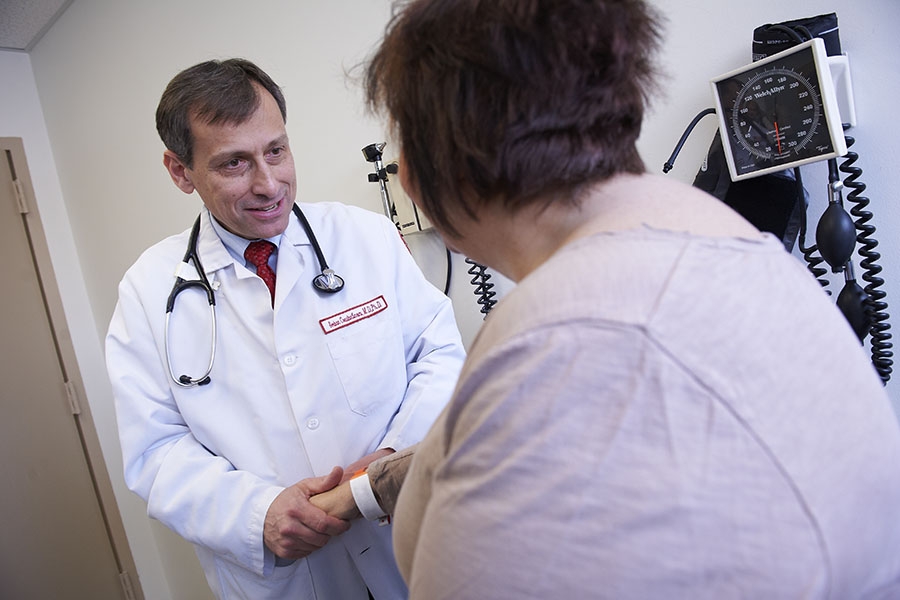In order to be matched to a kidney donor, you must be placed on the national kidney transplant waiting list. The United Network for Organ Sharing (UNOS) manages the kidney transplant waiting list and works with transplant centers across the country to identify and match kidney donors to recipients. As your partner, Temple’s transplant team will work to place you on the list once you meet the criteria for a kidney transplant and complete a successful evaluation.
Temple’s Kidney Transplant Program has achieved shorter kidney transplant wait times than the national rate, with survival rates that exceed the national rate of 95.19% for living donor kidney transplant and 94.00% for deceased donor kidney transplant.* This is possible due in part to our Living Kidney Donor Program, which significantly decreases the wait time for a kidney transplant, and supports the best outcomes for patients in need of a kidney transplant.
We take every possible step to help ensure you’re ready when a potential kidney donor becomes available. With the close relationship between our transplant team, our patients on the waiting list, our living donors and our UNOS partners, we work to uncover every opportunity to match you with the right donor. And once you’re matched, our experience in providing excellent pre- and post-transplant care helps give you the best chance of long-term survival after your transplant.
What Are Temple’s Criteria for Kidney Transplant?
Temple prides itself on accepting potential kidney transplant candidates who may have been turned down by other centers. In order to be eligible for a kidney transplant, you must first meet certain criteria, including:
- Diagnosis of chronic advanced or end-stage kidney disease
- No substance use
- Elevated BMI
- Good social, emotional and financial support network
How to Get on the Waiting List
If you meet the kidney transplant criteria, our transplant team will evaluate you with a number of consultations and tests to see if you’re a candidate for surgery. These may include:
- Blood tests to determine your blood type. Your blood type must be compatible with your kidney donor’s blood type.
- Tissue typing, to help the transplant team find the right match for you.
- Crossmatching, which determines the number of antibodies you have. If you have a high number of antibodies, this is an indication that your body may reject a new organ.
- Chest X-ray to see if your lungs are healthy and free of disease.
- Echocardiogram, EKG and stress test to determine if your heart is strong enough to support you through surgery.
- Cancer screening, including colonoscopy, skin cancer screening, prostate screening, pelvic exam and mammogram if applicable.
- Dental exam to see if you’re free of any concerning gum or dental disease.
- Psychological exam to screen for any signs of emotional or mental concerns that may prevent you from a healthy recovery.
Once your evaluation is complete, the Temple transplant team will meet to review your results. Your transplant coordinator will then contact you to let you know if Temple recommends you for a kidney transplant.
- If you qualify for a kidney transplant: the transplant team will work with UNOS to place you on the national waiting list.
- If you do not qualify for a kidney transplant: we will work with you to explore other treatment options.



